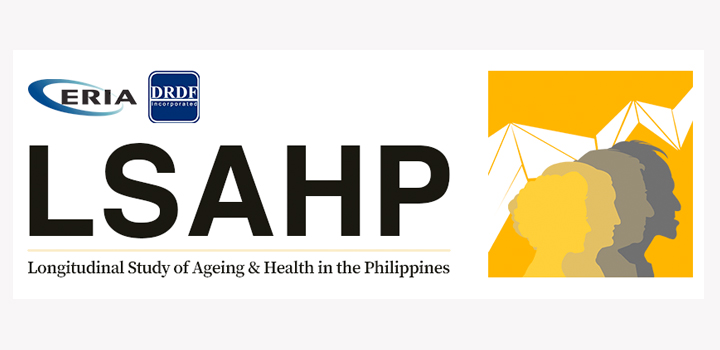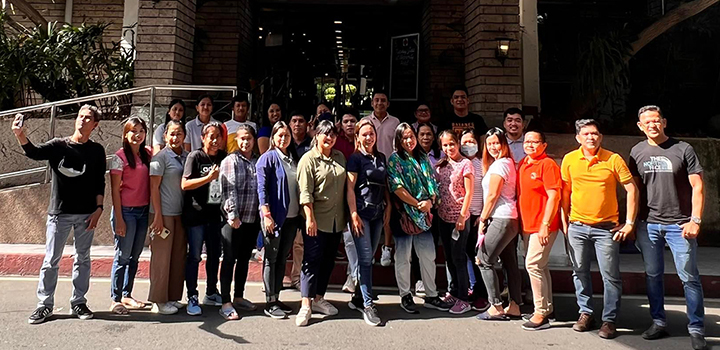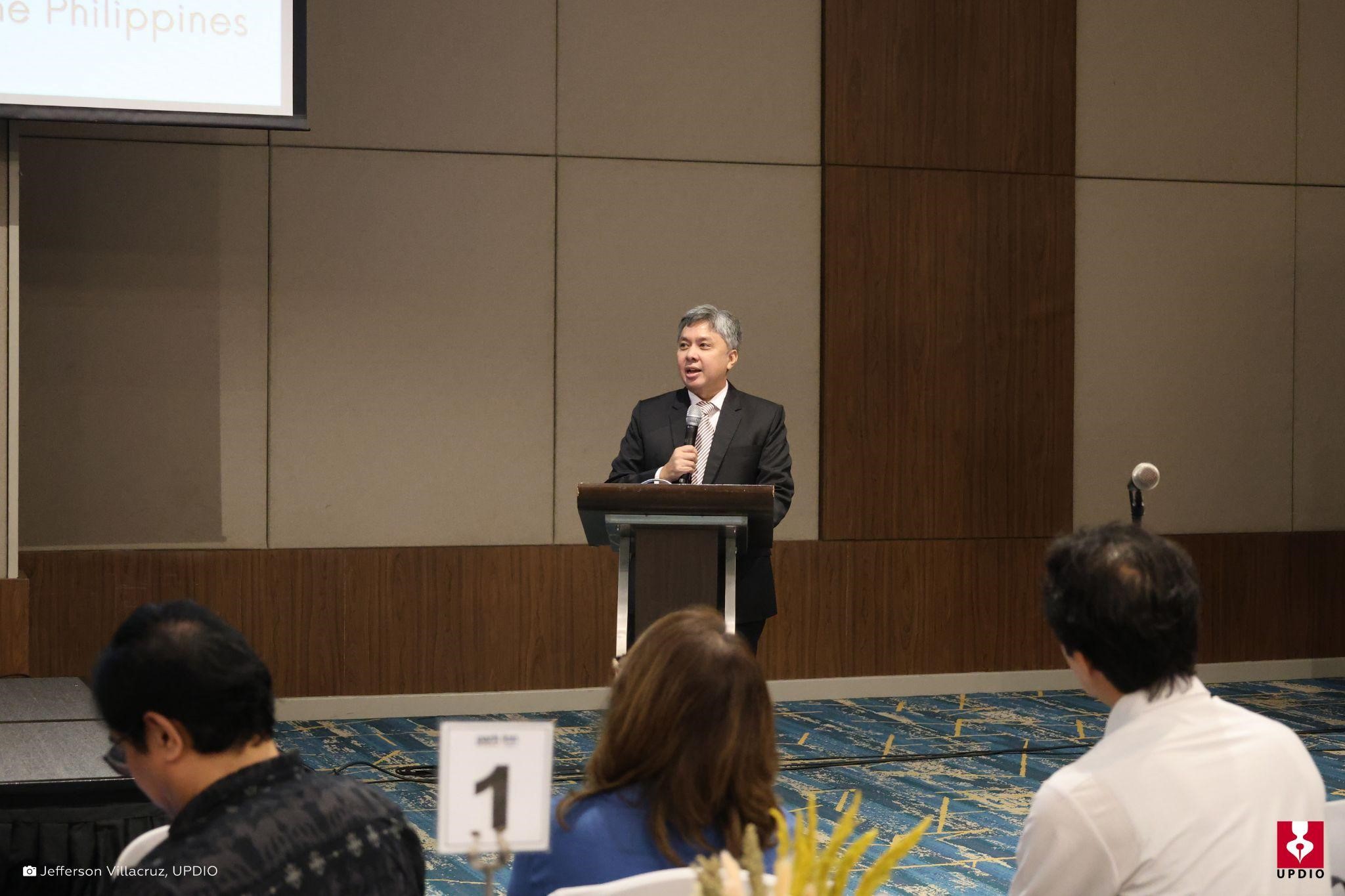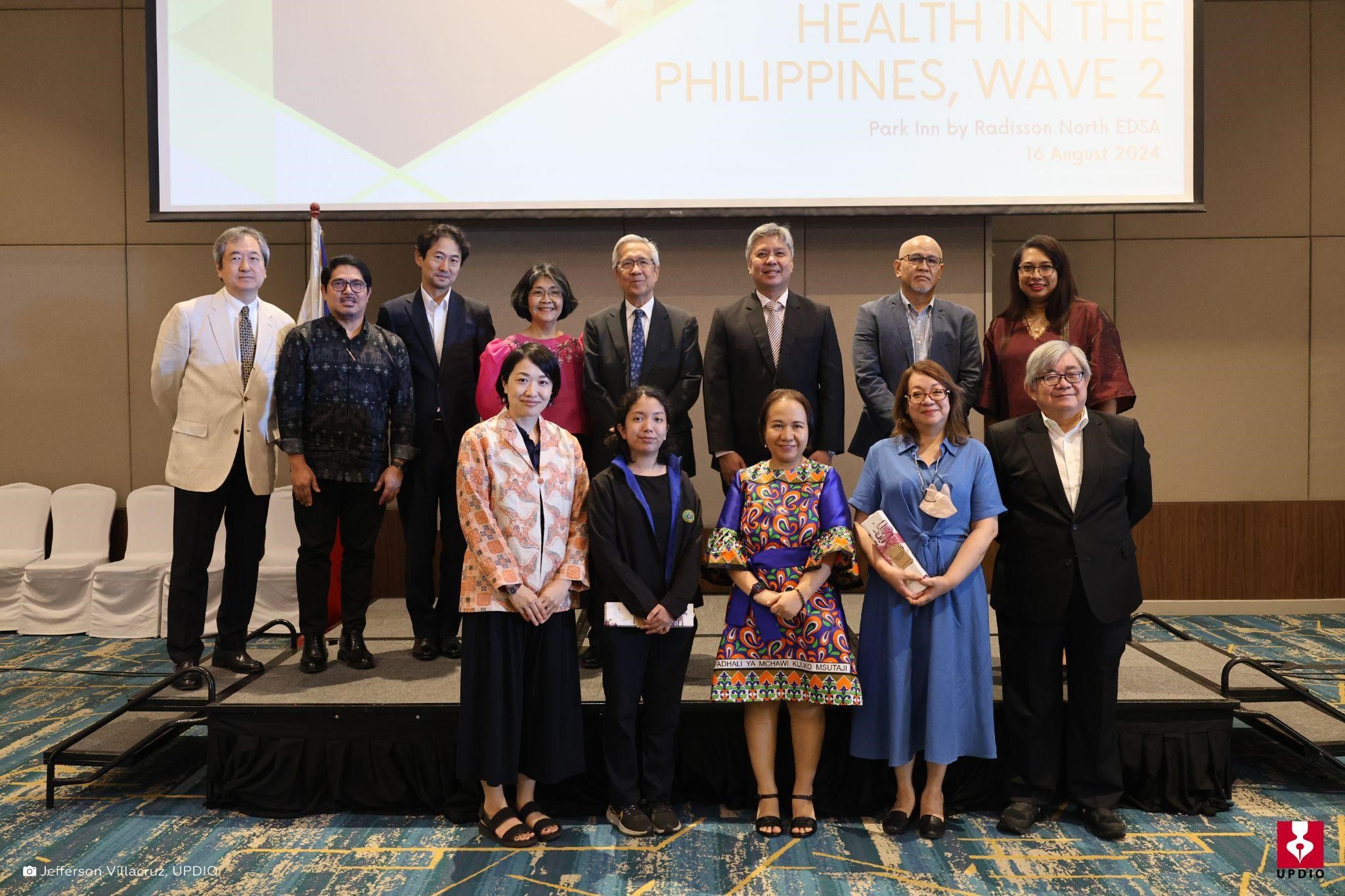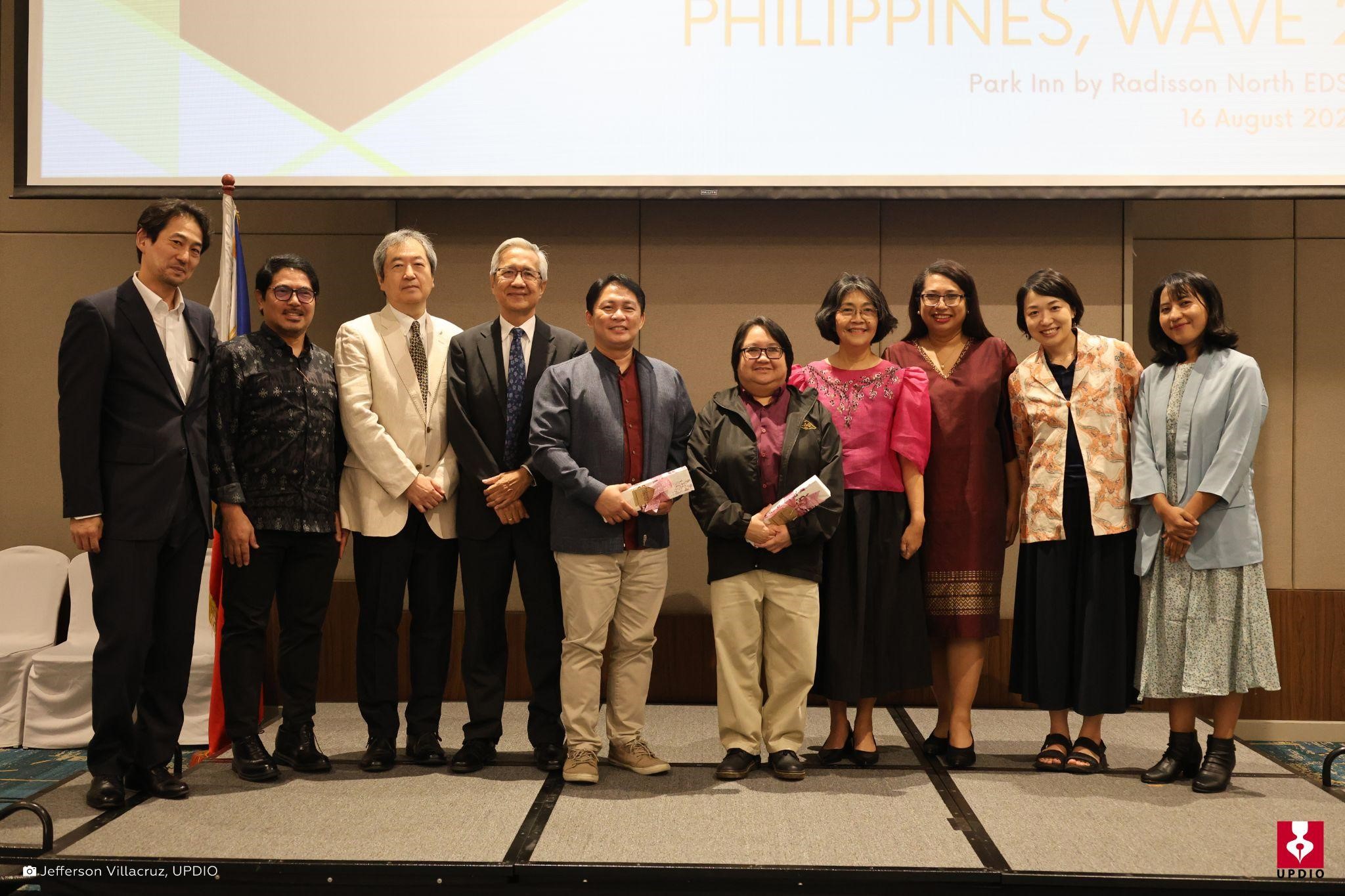
Quezon City, Philippines, August 16, 2024: The Demographic Research and Development Foundation, Inc. (DRDF), Economic Research Institute for ASEAN and East Asia (ERIA), and the University of the Philippines Population Institute (UPPI) held a successful dissemination forum on the results of the Longitudinal Study of Ageing and Health in the Philippines (LSAHP) Wave 2. The event, which took place at Park Inn by Radisson North EDSA, Quezon City, brought together key stakeholders, including government officials, practitioners, researchers, academics, and representatives from international bodies and non-governmental organizations (NGOs), to discuss the findings from LSAHP Wave 2 and their policy and program implications.
The event opened with a Welcome Address by Edgardo Carlo L. Vistan II, Chancellor of the University of the Philippines Diliman. He introduced the LSAHP, acknowledging the ERIA for funding the project and DRDF for its implementation. Chancellor Vistan highlighted the LSAHP findings as a valuable resource for government agencies, NGOs, and international development partners in developing policies, interventions, and innovations to improve the lives of older Filipinos. He emphasized the importance of collaboration to enhance the quality of life for older Filipinos and support global initiatives like the United Nations Decade of Healthy Ageing (2021–2030) and the Sustainable Development Goals (SDGs).
Following Chancellor Vistan’s remarks, Dr. Aladdin D. Rillo, Managing Director for Policy Design and Operations at ERIA, addressed the challenges of preparing for an ageing society, including rising pension costs and the importance of preventive healthcare. He stressed the need to shift from focusing on the negative aspects of ageing to promoting a longevity agenda that supports longer, healthier, and more productive lives. Dr. Rillo suggested solutions like increasing labour force participation rates through flexible employment. legislation protecting older people’s rights, and lifelong learning initiatives.
The event focused on the presentation of the LSAHP Wave 2 results: (1) Demographic, Socioeconomic, and Health Profile, and (2) Access to Social Infrastructures, Mortality, and COVID-19 Experiences. After each segment, a panel of reactors shared their insights and responses to the findings.
The first segment highlighted demographic shifts, socioeconomic conditions, and health status of older Filipinos. Undersecretary Joseph J. Capuno of the National Economic and Development Authority (NEDA) emphasised the need to identify gaps in budgeting, awareness, or access to better address the welfare of older people. Dr. Gabriele Dominique P. Domingo of the Department of Health (DOH) underscored health disparities among older Filipinos and advocated for a “whole-of-government” and a “whole-of-society” approach to healthy ageing, beginning in childhood. Dr. Shelley Ann F. de la Vega, Director of the Institute of Aging at UP Manila, highlighted the need for long-term care planning, especially for those with dementia or caregiving needs.
The second segment focused on older Filipinos’ access to social infrastructure and their experiences during the COVID-19 pandemic. Emmanuel E. Daez, Executive Director of the National Commission of Senior Citizens, highlighted the NCSC’s initiatives like the Senior Citizens Care Center or Community Care Center (SC3C) to bring services closer to older adults, stressing the need for continued collaboration to build age-friendly communities. Atty. Germaine Trittle P. Leonin, Consultant for the United Senior Citizens Partylist, called for increased awareness of existing programs and revisiting the Senior Citizens Center Act. She emphasised the need for a long-term, unified system of elderly care, long-term care, and better access to medicines at the local level.
Dr. Grace T. Cruz, Principal Investigator of the LSAHP and Professor at UPPI, delivered the synthesis of the results, summarizing the key points and offering recommendations for promoting healthy ageing in the Philippines.
An open forum, moderated by Dr. Elma P. Laguna, Director of UPPI, allowed participants to engage with the reactors and authors of the LSAHP Wave 2 Report. This interactive session allowed for a rich exchange of ideas and strategies for addressing the identified challenges.
The event concluded with closing remarks from Dr. Juan Antonio A. Perez III, Chairperson of the DRDF. He invoked the term “virtuous impatience” popularized by former NEDA Secretary Ernesto M. Pernia and highlighted three urgent issues: the large number of older people living alone, limited access to pharmacies and maintenance medicines, and high out-of-pocket costs for healthcare. Dr. Perez urged participants to incorporate these findings in their work and stressed the need for continued efforts to address these challenges.
The dissemination forum marked a significant step in raising awareness of the challenges and opportunities associated with population ageing in the Philippines. It underscored the need for continued research, policy development, and advocacy to ensure older Filipinos can lead healthy, productive, and dignified lives. The event successfully brought together diverse perspectives and highlighted the critical role of multi-sectoral collaboration in addressing the complex issues facing the ageing population.


